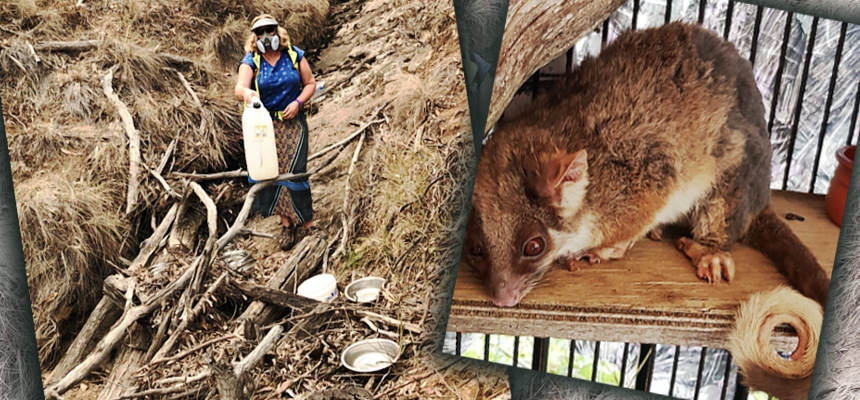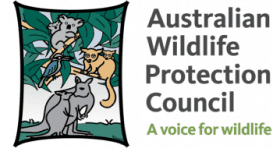
Want To Help Fire-affected Wildlife? Regional Nsw Network Set-up.
Share this page MILLIONS OF NATIVE animals have been killed and survivors deprived of food, shelter and water thanks to the unprecedented bushfires sweeping the country, on the back of extensive drought. The drought is predicted to continue as well as the fires for some time. In our own backyard, Wildcare (Queanbeyan, Bungendore, and nearby rural areas) and the Native Animal Rescue Group NARG (Braidwood area), along with individual property owners, are ramping up efforts to provide food, water, and in some cases shelter. You can help. See how, below. The North Black Range bushfire, between Bungendore and Braidwood, is the nearest fire arena. Property owners on the periphery of the burnt-out area are seeing and reporting animals searching for food, water and shelter. Affected animals are turning up in unusual places. Food and shelter stations being set up Wildcare and NARG volunteers, with the help of the community, have started to deliver essential food — grass, hay, pellets, bird seed — and other food, such as fruit and native tree and shrub cuttings. Food stations are positioned in strategic locations. It’s reported to be working — with animals coming in to feed. Watering points have also been set up. Nesting boxes for possums and gliders have started to be erected to provide shelter. Property owners and members of the public have been extremely helpful in maintaining the food and water supply and for the cash donations needed to support this program. More needs to be done. Fire and drought-affected property owners who need assistance with the cost of helping can make use of the Food4Wildlife scheme. Food (pellets for macropods or possums and bird seed) can be picked up from one of four collection points in Bungendore and Braidwood. Visit wildcare.com.au for specific locations. For example, in Bungendore there are two bins outside Bungendore Produce on Gibraltar Street for that purpose. Hay is also available to support grass-eating animals (contact haydrop@wildcare.com.au). Wildcare thanks the many businesses who have donated food and material to support this effort, which will continue for many months until the native habitat recovers. Don’t forget the water With soaring temperatures, creeks and dams are drying out, so providing a water source for native animals is vital, including in our own drought-affected areas. Put out bowls and troughs, or similar large containers, in shady locations for our native friends and keep the birdbaths topped up. Place stones and branches in the container to allow access and exit by insects and smaller animals. CAPTION: Our main picture shows a friend of The District Bulletin in Canberra, topping up water containers on Black Mountain, while guarding against the world’s most toxic hot air … the impact of the bushfires and government climate policy. ON RIGHT: RFS-rescued possum receiving treatment from Wildcare. Images supplied. Cash donations to Wildcare or NARG are vital for the ongoing demand to resupply food and buy materials that support affected animals. If people wish to donate, visit wildcare.com.au and find out the ways that this can be done. Please give whatever you can to help save the surviving wildlife from the North Black Range bushfire. Call Wildcare on 6299 1966, or NARG on 4846 1900, for further advice. Humane Society International joins the helping hands Working particularly with wildlife carers on private property, Humane Society International (HSI) has opened an appeal for donations and an emergency hotline for carers needing assistance. Wildlife carers in need can call 1800 333 737. HSI has already assisted with delivering emergency water supplies and supplementary feed for rescued wombats, kangaroos and flying-foxes. HSI is also funding the building of additional rehabilitation enclosures for animals like koalas to ease the pressure on carers who are inundated with animals. Many of HSI-supported Wildlife Land Trust members are wildlife carers, and many have lost everything they worked so hard to build. The organisation is pledging it will be there for the long haul. For the many people who want to help animals in areas surrounding the fires, a simple start is to put out shallow bowls of fresh water. Fruits and vegetables can also be attached to trees to help flying-foxes, birds and possums, but some foods such as bread can be harmful to wildlife and should be avoided.
